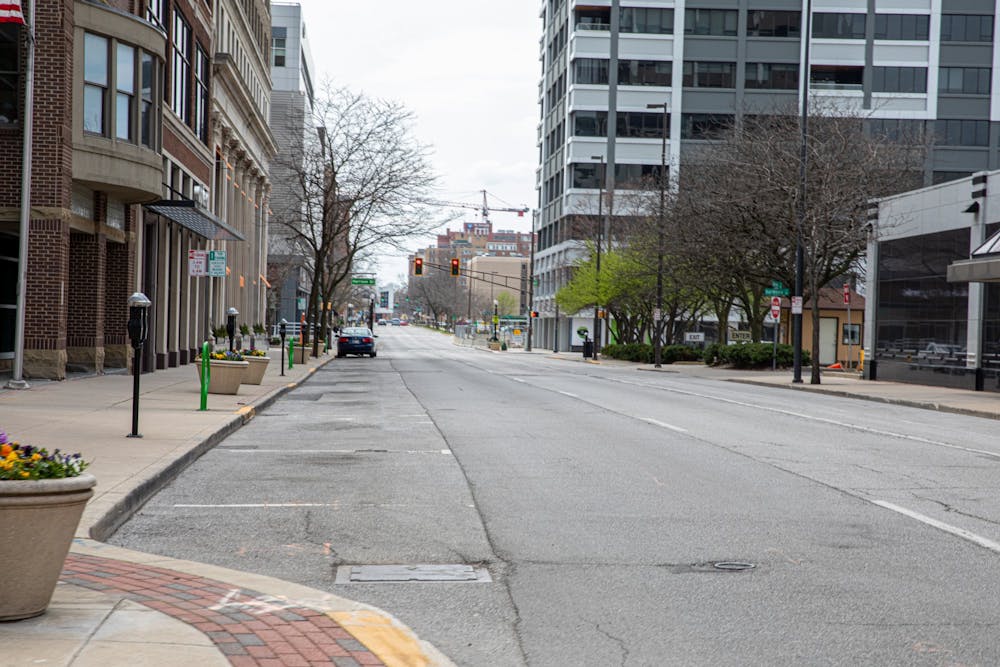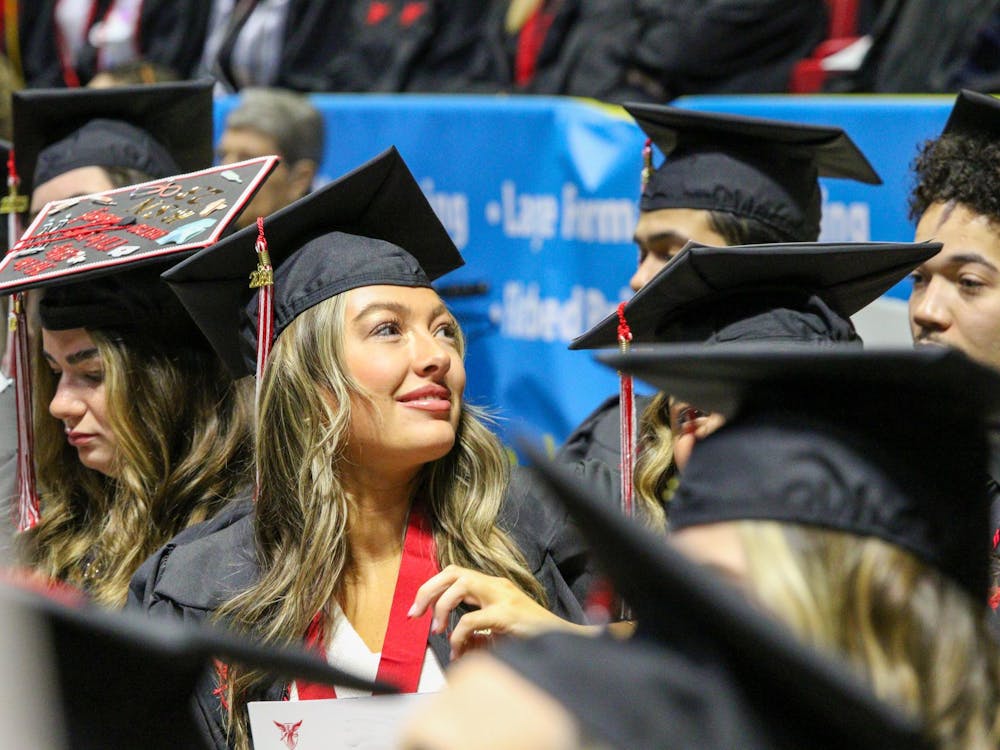As a byproduct of the stay-at-home order in Indiana, universities, including Ball State, are using less energy due to classes being moved online, said David Chandler Thomas, assistant professor of economics.
In addition to less driving, the decline in production of nonessential goods, people not going about their normal activities and making their usual purchases has also helped the environment, said Joshua Gruver, assistant department chair of the department of environmental, geology and natural resources.
While offices and public spaces are using less energy, he said, people are now using more energy in their homes. However, there are steps Gruver and Thomas said students can take to be environmentally friendly even in isolation.
Eat plant-based foods:
The costs of producing and processing meat are much larger than the costs of producing vegetables and fruits, Gruver said.
“The way we treat the earth in the production of those foods at the level that we produce them requires a lot of inputs, and often, those inputs are not good,” he said.
According to a 2018 article published in the National Center for Biotechnology Information’s PubMed Central journal, it is unlikely plant-based diets provide advantages but do not suffer from disadvantages, compared to omnivorous diets for strength, anaerobic or aerobic exercise performance.
However, the article stated plant-based diets typically reduce the risk of developing numerous chronic diseases over the lifespan and require fewer natural resources for production compared to meat-containing diets.
Gruver said students should consider plant-based meals for most of their diet in order to practice sustainability and a healthy lifestyle.
Save leftovers to avoid store trips:
People can avoid contact with highly-touched surfaces in grocery stores by making the food in their pantries last longer.
According to the U.S. Department of Agriculture’s website, dividing food into smaller portions and saving them in small containers can help cool food rapidly and avoid bacterial growth.
It said leftovers can be kept in the refrigerator for three to four days or frozen for three to four months. Covering leftovers, wrapping them in airtight packaging or sealing them in storage containers can help keep bacteria out, retain moisture and prevent them from picking up odors from other food in the refrigerator.
Be mindful of energy use:
While offices and academic buildings are using less energy through not having to provide technological services to people, Thomas recommended replacing light bulbs with LEDs to decrease personal energy use.
According to the U.S. Department of Energy, 12-watt LED light bulbs save about 75 to 80 percent of energy costs and last 25 times longer when compared with a 60-watt traditional incandescent light bulb.
“They pay for themselves in 90 days — they use 10 percent of the power of regular light bulbs,” Thomas said. “I encourage students to learn a sustainable lifestyle. Use less power.”
Recycle when you can:
When off-campus students run out of free recycling bags, it can be a cost barrier to keep up the habit. If students are not able to recycle, Gruver suggested thinking of creative ways to reuse items instead, such as refilling water bottles with a water filter instead of drinking bottled water.
“The little things add up. Just recycle when you can, and think about other ways you can help the environment at home,” he said.
Reuse bottles and containers:
Buying reusable containers is helpful for food storage and the environment. By decreasing the use of plastic wrap and other one-time storage solutions, students can declutter their cupboards and properly store leftovers.
According to the Earth Day Network, people purchase about a million plastic bottles every minute, and about 23 percent of plastic bottles are recycled within the United States.
By using a water filter and a glass or metal water bottle instead of plastic, students can decrease the number of global plastic bottle purchases.
Consider starting a vegetable garden:
Gruver said the rainfall in central Indiana is well suited for vegetable gardens. He said some farmers he has met as director of the Muncie Food Hub Partnership have grown broccoli, spinach and onions.
The Farmer’s Almanac suggests beginners start a garden with good soil and a 16-by-10-foot plot or smaller. Tomatoes, peppers, carrots and radishes are some of the many vegetables that can be grown in small gardens and produce a high yield.
“You can put a few plants in the ground and suddenly be overwhelmed by how much stuff you get from it,” Gruver said.
Educate yourself on sustainability:
Thomas, an environmental economics professor, said Ball State students should consider taking electives in environmental science courses.
While some courses require prerequisites, he suggested the university has open electives for introductory natural resource and environmental management classes.
Students can also take this time to read books or magazines about environmental friendliness to benefit their own learning, Thomas said.
Rohith Rao contributed to this article.
Contact Grace McCormick with comments at grmccormick@bsu.edu or on Twitter @graceMc564.





